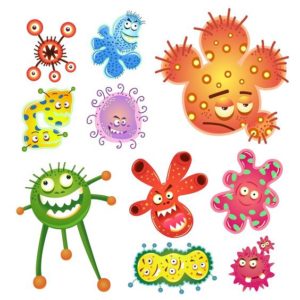Visiting Philippines – Be Careful (Part One) – Health Risks
If you are in an Australian Filipina relationship, inevitably you will visit Philippines at least once. It’s all part of the deal, as it were. Apart from the fact that you need to meet in person to get a visa (not just partner visas, but you won’t have any success in getting a tourist visa from Philippines to Australia if you haven’t met in person yet), you also need to see how she lives if you want to understand her. Filipinas and Philippines culture are intertwined. She’s not just a short Aussie girl with a great suntan. She is most definitely Filipina, and that means to understand her properly you need to try to understand the Philippines.

So yes, you need to visit. And you need to make sure you’re safe by being aware of some of the dangers. We’ll look at health risks.
Philippines and health risks
The Philippines is a third-world country, and it’s also in South East Asia. It’s not Australia. There are health risks here which you won’t find back home in Brisbane or where ever you’re from.
Dengue Fever
This is a mosquito-borne virus that can be deadly. Characterised by a sudden high fever, pain behind the eyes, pain in the joints. In severe cases there can be bleeding from the nose and gums, and this can lead to death. It always requires hospitalisation. The issue is to not expose yourselves to mosquito bites! Use repellents. Make sure rooms are screened. Burn mosquito coils (Katol in Tagalog). Avoid exposure to mosquitoes, particularly in early evenings.
Hepatitis
Hepatitis is fairly rife here, especially as the locals aren’t so careful with not sharing saliva! Yucky topic, but it’s true. People will share food, cups, bottles, etc. So the virus transfers fairly easily. Hep B is normally transferred by bodily fluid or by blood. Can be transferred by saliva. Hep A is transmitted via water or food which has come into contact with infected poo (yeah, I know!). Hep A, you can get over. Hep B, you will have for life. So, being careful with whom you share bodily fluids with (The old rule says “Flies spread disease! Keep yours closed!”), as well as with sharing food, cups, drinks, etc. And watch out for possible water and food contamination, which I’ll cover shortly.
Coughs, colds and infections in general
Australia is a big, clean country with fresh air and clean water. Less people per Km2 means less chance of cross-contamination. And there are more vaccinated people, and people who see doctors when they’re sick. You can drink water from the tap. You can eat in a roadside café and not worry about getting sick. You can walk barefooted without thinking you may step in contaminated saliva. You can touch things without thinking you need to use hand-sanitiser afterwards.
And if you do, then whatever antibiotic the doc gives you will usually knock it on the head. Here? People dose themselves with antibiotics. They might be taking cheap Chinese generic medicines with less active ingredients in them. They may be only taking 3 or 4 tablets because that’s all they can afford. And they are probably taking Amoxicillin for everything, because that’s what Auntie Jing Jing said to take. That builds resistant bacteria which can be difficult to control.
So if you do get sick, go and see a doctor. And make sure you get proper antibiotics from a proper pharmacy. Don’t try to tough it out. The same applies to wounds. Get them treated, or you may end up with cellulitis or something equally charming.
Food and water risks in Philippines
Cooking kills bacteria. That’s one of the reasons that food is cooked in the first place. You must be very aware of this principal while you are here. This is the tropics, and hot, humid conditions make bacteria reproduce faster than they will on the kitchen bench in Tasmania. And some of the locals are not as fastidious about food safety issues as I wish they were. So you need to watch yourself, or you’ll spend your trip here having the Philippines equivalent of Delhi Belly!
Refrigeration has the opposite effect on bacteria as does tropical weather. It’s cold and dry in there, which means minimal bacterial growth. Freezers, even more so. I can remember when I used to visit a previous girlfriend. The fridge was full of softdrinks for the sari sari store clientele, and food was left on the table under little flyscreened covers. It could sit there for days, and still get picked at. Hardly a week went past without someone in the family having the trots or the vomits!
And cooking food and eating it soon after, that also ensures a good bacteria-kill has taken place and gives little time for the bacterial population to build up again. If the food is freshly cooked, then it’s pretty safe. That applies even to meat and fish from the local market where it hasn’t been refrigerated at all. If it’s cooked thoroughly, then it’s basically safe! If it was cooked this morning (or even the day before!) and has been sitting out in the elements for the rest of the day getting stone cold, there’s a good chance it will make you ill. And if it was never cooked properly in the first place, ie. if it’s still bleeding inside, then you are taking a huge risk.
And anything uncooked, be that:
- Water
- Ice
- Salads
- Icecream
- Unwashed fruit
These things have no “kill-process”, and can be riddled with bacteria. Ice can be made from water contaminated with Hep A or other nasties. Taho, buku juice, or some other drink or snack might be served in plastic cups that the vender has re-used without washing or after washing with dirty water.
So please be aware of all of the above when visiting Philippines, and you should enjoy your visit here without picking up anything more infectious than the love of a good woman!


